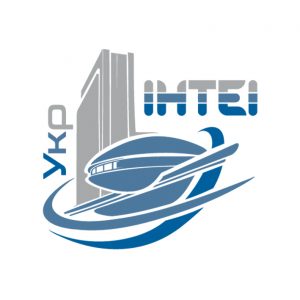Berezniak N.V. — Senior Researcher of Ukrainian Institute of Scientific and Technical Expertise and Information,180, Antonovycha Str., Kyiv, Ukraine, 03680; +38 (044) 521-09-34; bereznyak@uintei.kiev.ua
EUROPEAN SMART SPECIALISATION PLATFORM IS A NEW OPPORTUNITY FOR INNOVATION
IN UKRAINE
Abstract. A brief overview of opportunities, preferences and requirements for the participation of countries and regions in the European Smart Specialisation Platform (S3) is presented, which, in particular, enables Ukraine to open the regional potential of the state and carry out industrial modernization on innovative principles. Requirements for the development of the Strategy of Smart Specialisation and the key principles on which it is based are described. The reasons for access to investment in research and innovation from the European Structural and Investment Funds (ESIF), including the ERDF, have been identified. Approaches to the identification of priority areas, sectors and spheres of economic activity, in which regions or countries have competitive advantage or potential for sustainable knowledge based development are considered. The necessity and mechanisms of risk prevention at work on the platform S3 are grounded. The S3P Agri-Food thematic platform, which reduces the barriers for agro-food companies to access and implement the latest smart electronic systems and ensure the transition to Internet of Things in the agricultural and food industries, is considered.
Keywords: Agrarian food, investment fund, cluster, SME, platform, smart specialisation, S3, S3P Agri-Food.
REFERENCES
- European Commission. Guide to research and innovation strategies for smart specialisation (RIS3) (2012). Brussels, 27 p.
- European Commission. National/Regional Innovation Strategies for Smart Specialisation (RIS3). Cohesion Policy 2014-2020: The new rules and legislation governing the next round of EU Cohesion Policy investment for 2014-2020 have been formally endorsed by the Council of the European Union in December 2013, 44 p. Retrieved from:http://ec.europa.eu/regional_policy/sources/docgener/informat/2014/smart_specialisation_en.pdf.
- OECD. Innovation in science, technology and industry: Smart specialisation.Retrieved from:http://www.oecd.org/sti/inno/smartspecialisation.htm.
- Foray, D. The Goals of Smart Specialisation: S3 Policy Brief Series No (01.2013) Dominique Foray and Xabier Goenaga. Luxembourg: Publications Office of the European Union,14 p.
- Martinez, D., Palazuelos-Martinez, M. (2014). Breaking with the Past in Smart Specialisation: A New Model of Selection of Business Stakeholders within the Entrepreneurial Process of Discovery. S3 Working Paper Series, 04. Luxembourg: Publications Office of the European Union, 16 p.
- Foray, D., David, P.A. and Hall, B. (2009). Smart specialisation: the concept. Policy brief № 9, Knowledge for Growth, European Commission. Retrieved from: http://ec.europa.eu/investinresearch/monitoring/knowledge_en.htm.
- Bzhuska, Ya., Pyka, Ya. (2012). Rozumna spetsializatsiia rehionu [Reasonable specialization of the region]. Lviv (in. Ukr.). Retrieved from:http://ena.lp.edu.ua 363.
- Liakh, O.V. (2016). Rozumna spetsializatsiia yak instrument pryskorennia innovatsiinoho rozvytku rehioniv [Intelligent specialization as an instrument for accelerating the innovative development of the regions]. Retrieved from: http://www.confcontact.com/2016-ekonomika-i-menedzhment/7_ljah_2.htm.

